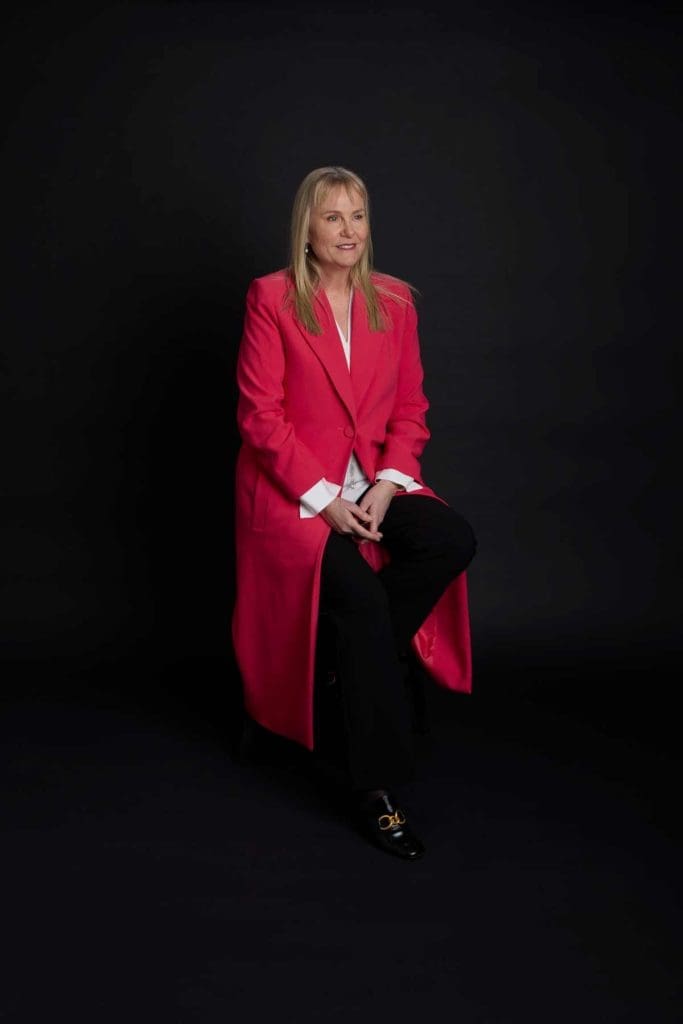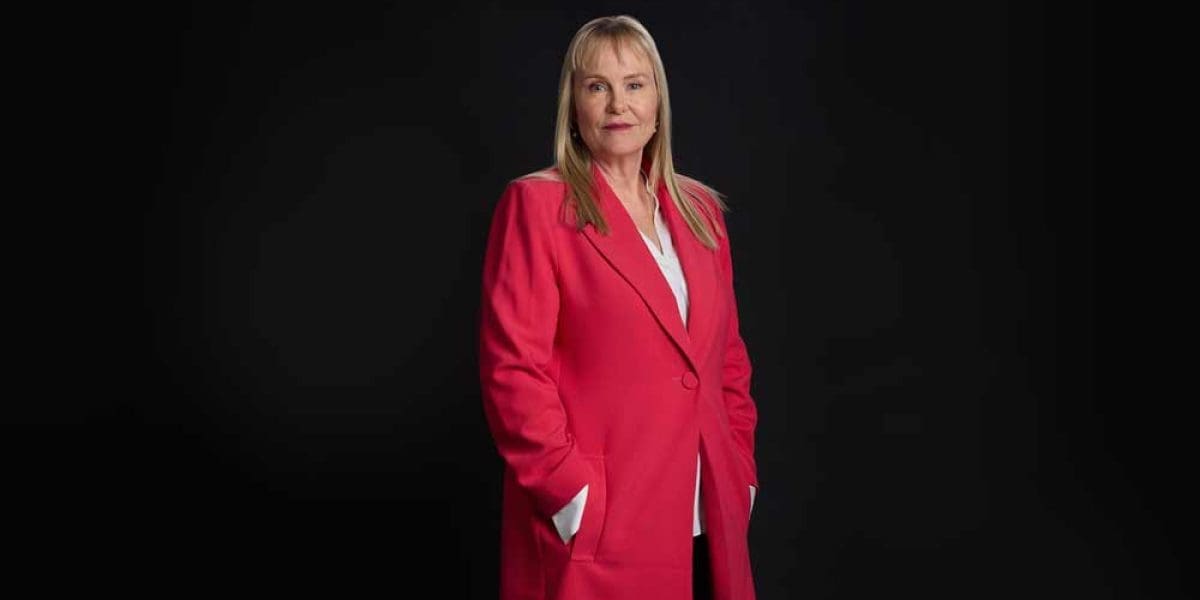Leadership, the Four Cs, and Rethinking the Path to Success
As the CEO of Skills Group, Rosanne Graham oversees a national education provider that spans 27 industries, serves 23 thousand learners, and is reshaping itself for a future defined by both human capability and technological change and is helping create the future of industry leaders of tomorrow.
In the role since 2022, Graham has been leading a transformation from industry training organisation to private training establishment, navigating political shifts and sector reforms, while embedding new technologies that are reshaping the business. It can mean long hours and not always the best work/life balance. “My kids often ask me what I do all day. And I laugh and say, I pretty much just sit in meetings. That’s a big part of what I do,” she says. “The thinking time and the planning time is usually in my time. So I might do that in the evenings. I can carve out time during the day, but if you sit in your office trying to do that, there’s a constant stream of people. So I just have to make that time in a different way.”
This can work both ways, though and Graham promotes flexibility and trust in her team. “You’ve got a bunch of outcomes to achieve. Fit it in around your life. If you’ve got something you need to go and do in a day, we just enable that to happen because we know that the person will make up the time and get done what they need to get done.”
It’s also about working smarter. “Sometimes I think we’re unproductive when we don’t have a clear strategy. When you’re really, really clear and say to the business, this is what we’re going to do, this is why we’re doing it, you gain real momentum because you’re not doing all that extraneous stuff.” But she is clear that clarity should never be created in isolation. “If you were to make the strategy on your own, that means you think you’re the smartest person in the room. And that’s a bit of a disaster as a leader.”
Leadership, also demands a willingness to make decisions others may find uncomfortable. “There’s a part of being a CEO which is you have to make difficult decisions. Sometimes people say, you’re a values-based organisation, but you’ve just made a whole lot of people redundant. My argument is always that you have to make decisions for the greater good of the organisation. Being values based is about how you manage those difficult situations. If I didn’t make those calls and that impacted the long-term viability of the business, then that was a worse decision. In my experience, if you put those decisions off, the magnitude of the problem just gets bigger and bigger.” says Graham. “Does it affect you? Of course, and I think it should, because you are talking about people’s livelihoods. I think there would be something wrong with you if you didn’t go home and think that was a pretty dreadful day”.
Graham’s pathway to leadership was not a straight line and she does not see university as the only valid route to success. She is vocal about the need to reframe how society talks about trades and vocational pathways. “We still use the term for the qualification that you gain in year 13, ‘oh, now you’ve got university entrance.’ Why do we say you’ve got university entrance? Only thirty percent of school leavers go to university. So don’t we mean you’ve now achieved NCEA level 3? If you are smart, that’s not the only path you’ll go down. Think of how many intelligent tradespeople you know.”
She sees trades not as a fallback but as work that demands creativity, problem-solving and skill. “Plumbers make very good money and there’s a real shortage of them. They’re bright people, they’re intelligent people. And it is creative.” For her, part of good career guidance is being realistic about where industries are heading. “They only take such a small percentage a year of all the graduates into work in clinical psychology, but there’s hundreds of them that have the qualification. So then what do you do? I think that’s the stuff for people to know, be a little bit realistic about the potential roles within an industry and where the industry is headed.”
AI is a revolution, Graham suggests that will impact industries faster than we probably realise. “I think that the rate of change and what it’s going to do for our organisations is going to be hard to keep up with. But what I do know is if we don’t embrace it, we will be fundamentally left behind.”

Graham suggests that leaders themselves must adapt to keep pace. “The moment you think how I do something is the right way, I think you’re in trouble. You’ve got to retain that flexibility of thought and that curiosity because if you’re too rigid, you can become a dinosaur quite quickly.” AI, in her view, is a tool leaders need to understand and use effectively, not something to resist or fear. It is about augmenting human decision-making and freeing people to focus on higher-value work.
Graham also promotes a set of leadership traits that are important in times like this. “We talk about the four Cs and then one A,” she says. “It starts with creativity, because if AI can do the mundane, we have to build those creative, lateral skills. Then there’s critical thinking, the ability to look at data, ask the right questions, and draw insights from it. Then communication, because as a leader you have to be able to articulate things to your organisation. And collaboration, you have to be able to work in projects and across teams. If you’re only able to operate in a silo, you’re not that valuable. Then the A is the ability to adapt. AI is a revolution, but what’s the next one in 10 years or 20 years that we haven’t even thought about yet?”
For those who aspire to become CEOs, Graham’s advice is to try and build experience across all aspects of a business. “Start with a total passion to learn new things… Get building blocks in place. Everyone should do a stint in sales. You sometimes surprise yourself with what you end up loving.” She also stresses that leadership is not actually for everyone. “People think that it’s the thing that they want to become and they think it’s the top of this tree, but the reality is, I’ve got six bosses, I’ve got a board. Wherever you get, there’s always somebody you’re accountable to. It depends entirely on what your skill set is and what you like doing. If you’re a CEO, I think you’re often a bit of a generalist. You can cope with ambiguity, you can cope with change, you can move at pace, and you don’t get overwhelmed by it all.”
Graham believes that aspiring leaders should focus less on chasing titles and more on becoming exceptional in their chosen area. “Be the best you can possibly be in the area that you really enjoy, where you can really contribute. If you’re fantastic at something, be the best in it.”
